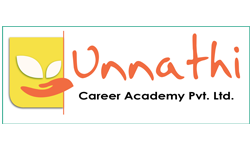Career transitions are tough but not impossible. A well-planned strategy and support of your family may make the path really easy for you. Not only can you transition to a new career but also achieve new heights in the respective field.
However, you will be needing the advice of people who actually changed their career and proved successful. This is why we did a thorough research by interacting with people who managed their career transition really well with the hope of acquiring the knowledge and imparting it to the candidates who are scared to choose a new career path.
- Identify your strengths
Understanding your capabilities is crucial for choosing a career path and achieving success. It involves recognizing your strengths and passions, whether they lie in oration and writing, reasoning and aptitude, or excelling as a sportsperson through fitness training.
For example, Lata Mangeshkar, it’s difficult to imagine her as a cricketer, just as it’s hard to envision Sachin Tendulkar as a singer. These individuals achieved greatness because they were aware of their unique talents, passions, and aptitudes.
Career transitions provide a second chance to excel by learning from past mistakes. However, it’s essential to analyse oneself thoroughly. Self-assessment and skill tests, available both online and offline, can assist in this process. By conducting these assessments, you gain a deeper understanding of your abilities, interests, and aptitudes, enabling you to make informed decisions about your career.
By capitalising on your strengths and pursuing a path aligned with your true potential, you increase your chances of achieving remarkable success in your chosen field.
- Develop skills according to your strengths
This sounds a bit tricky however, this is the most intelligent move you can make in your life.
Let’s take the scenario where you are a gifted writer seeking to advance your profession. But it’s crucial to avoid entering the market carelessly and without a solid strategy. An excellent initial step to developing your skills and building a career roadmap is to enrol in an online writing school.

You can have access to knowledgeable professors and fellow writers who can provide insightful advice and direction on your professional path by enrolling in a course that focuses on your desired skill set.
Additionally, developing your abilities in fields where you naturally excel can make learning more interesting and engaging. Building on your natural abilities will probably enhance your motivation and confidence, which will ultimately result in more success in your writing profession.
- Find right industry
Multiple industries can make use of a skill. For instance, an MBBS graduate may work as a full-time clinician in a hospital or even in a college where he or she may instruct incoming medical students in various disciplines.
Finding the ideal fit where you can learn, earn, and succeed at the same time is important. Similar to other professions, writing has numerous subfields, including copywriting and content writing. Your self-awareness becomes important at this point. As always, you are your best critic. Nobody knows you better than you do.
- Update your resume and write a cover letter
Both a resume and a cover letter are necessary for a successful job application. Together, they help you stand out from other applicants by showcasing your abilities, background, and qualifications to a potential employer.

A strong first impression can be made on a hiring manager with a well-written cover letter. It gives you a chance to identify yourself, discuss your interest in the position, and showcase your qualifications. Additionally, it demonstrates your excitement and commitment by displaying that you took the effort to customise your application to the particular position and company.
Contrarily, a resume is a summary of your professional background, educational background, abilities, and accomplishments. It ought to be brief, simple to understand, and customised for the position you’re looking for. A compelling CV can make you stand out to a hiring manager and help you land an interview.
A cover letter and resume work together to paint a complete picture of your qualifications and present a compelling argument for why you should be hired for the position. Making the effort to create a strong CV and cover letter might significantly increase your chances of getting the job you want.
- Make connections
Make good connections. No, we are not talking about platonic relationships but the value adding ones. And the best place to start with is LinkedIn.
Any job success depends on having a strong professional network, and LinkedIn is a priceless resource for doing so. LinkedIn may assist you in growing your network, learning about job openings, and showcasing your abilities and expertise to prospective employers whether you’re a fresh graduate or a seasoned professional.
With millions of professionals from different fields and backgrounds using the network, LinkedIn offers an unmatched chance to create meaningful contacts that can advance your professional aspirations. Don’t delay; begin developing your LinkedIn profile right away and sign up for the biggest professional network on the planet.
- Start with internships and part time jobs
A career takes time; Rome wasn’t created in a day, either. Move gradually and slowly. Try to create your portfolio by working as an intern and a part-time candidate instead of directly applying as a full-time employee to organisations like Goldman & Sach. By doing this, the procedure will be less strenuous and you’ll gradually develop your talents and confidence.
- Learn to be flexible
Candidates with good adaptability are valued by employers. Avoid having a rigid attitude. Be like water, which can assume any object’s size and shape when poured into it.
Never be afraid to try anything new, and don’t abdicate your duty. If a business demands that you try something novel, you should actively participate as per the new requirement. This will force you out of your comfort zone and help you develop a variety of skill sets.
- Connect with a career counsellor if necessary
If you are still unable to discover a solution, career counselling is a one-stop solution. You can analyse your abilities and interests, find new employment opportunities, and create an action plan with the aid of a career adviser. They can also offer suggestions on how to write a CV, conduct interviews, and find work, assisting you in making the strongest possible impression on prospective employers.

On the other hand, a mentor might offer insightful counsel based on personal expertise in your sector or industry. They can assist you create your professional network, provide support and encouragement as you make your shift, and offer advice on career growth.
Both career counsellors and mentors may offer you a variety of information and support, assisting you in making wise choices and achieving your professional objectives. Getting advice from a mentor or counsellor can be a priceless tool, whether you’re wanting to switch careers or develop in your current one.
Conclusion
It can be intimidating to start a new job path, but with the correct attitude, you can succeed. Through self-evaluation and skill assessments, start by recognising your strengths, and then concentrate on learning skills that complement your innate abilities.
Then, identify the ideal industry where you may advance your knowledge, earn a living, and prosper, and demonstrate your abilities with a standout resume and cover letter. Start with internships or part-time work, cultivate a strong network on LinkedIn, and don’t forget to be adaptable and open to new challenges. You’ll be well on your way to attaining your job goals if you follow this advice!


